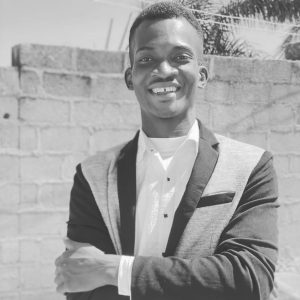It rained grief in Idoani; the day Mr. Dawap died, and the longest, largest, and fruitless tree was down. Under the tree were lengthened wooden chairs, before his death. The administrative block, structured for tenured principals – the kind and boring; the smart and sluggish; the embezzler and warmth; the bigoted and generous – who would lead and disciple other administrative folks, was a few steps away and adjacent to the staff room Step-B. Younger teachers could not make postural contact with and under the tree. But strangers did. It changed, after Mr. Dawap’s demise; at the arrival of Mr. Twahirwa, the mathematician from Rwanda, nicknamed ‘The Philosopher’.
Earlier after the longest sessional holiday, the United African Nations Commission assented and signed the consented act issued by the African Panel of Inter-Education Affairs to promote cross-cultural intellectual curiosity in the continent. Educators would be transferred from and to different African Countries to teach their expertise for three months. An exciting prospect for the fifteen-year-old Chukwuebuka. He wanted to scribe; his father declined. He loved mathematics; paternal embracement. He loved to scribe; he wanted to be counted, to be taken seriously.
Resumption activated. New session. New classes and teachers. A Rwandan mathematician, Sudanese biologist, and Tanzanian physicist were assigned senior secondary school level two. Chukwuebuka loved the previous mathematics teacher’s style but he sensitively stuttered.
The Philosopher, more grounded instantly. The first class, ‘Modular Arithmetic’.
“Any question?” The Philosopher asked, at the end. Chukwuebuka raised his hand. “Alright, go on.”
“Sir,” Chukwuebuka said.
“Yes.”
“I want my own. I want to create my method in math,” Chukwuebuka sermonized. “In the previous level, the math teacher told us about John Venn, and how he created his method of solving Set problems. How Pythagoras also created trigonometry, and how Pascal also did his. But sir, these people have died before my father was even born. Please sir, teach us how to create our method, sir. I don’t like, for example, any of the methods used to solve quadratic equations except the graphical method, sir. I want to create my method. Ebuka’s method.” The student murmured in the tiniest sliver. Dada, the class captain furrowed his face at Chukwuebuka. Is this boy mad or something? What did he take?
“Is that all?” The Philosopher asked, flipping through the student’s note at his front.
“No sir,” he said, and reverted, quickly. “Yes sir, that is all sir.”
“See me in camera.”
“Alright, sir,” Chukwuebuka said, trepid. Dada stood from his seat and walked to him, angry and astonished. He didn’t believe him.
“Ebuka, what is wrong with your head?” Dada asked. “Are you on something or something is on you?”
“What have I done?” Chukwuebuka asked.
“Water and Garri to make Eba on your wedding day,” Dada said. “How could you ask such a question? Were you asking questions or preaching?”
“Please Dada, leave me alone. You have no idea of what I’m going through.” Chukwuebuka said.
“What are you going through? Or you don go give person pikin belle? Have you impregnated someone’s daughter?” Dada asked.
“Stop that joke.”
“Be the one to stop joking. This man is from the East. Remember I am the class captain, and I have access to their documented profile in the Step-B. He can’t understand the West.” Dada said. “Don’t you know that country? The country with very clean environment, especially their market square. Do you have an idea of how disciplined their president is? If anything happens now, you will see how they will be saved. Their president doesn’t joke with the citizens. The Ugandan historian who took my younger sister’s class said their President is called a Visionary Dictator. So, ask questions that make sense, and stop preaching.”
“Really?” Chukwuebuka said. “I don’t care whether he is from the East or West or North or South. As humans, we are both similarly different and differently similar. Period.”
“Well, that’s true though,” Dada said.
“No. it’s not just true. It is the truth. I only need an African I can trust,” Chukwuebuka said. “Anyways. It’s just three months. So, no pressure. I just pray that he stays longer. I like the man.”
The Philosopher’s office is far away from the longest, largest, and fruitless tree. It was carved out from a classroom block as a Mr. Dawap sponsored renovation. Chukwuebuka strolled. “Good afternoon Senior Ebuka,” a junior level student saluted. No response. All he would do was to pour his mind to The Philosopher. He knocked. “Ngwino,” The Philosopher instructed.
“Sir,” Chukwuebuka said, discombobulated.
“Oh sorry. Come in, the door is open.”
“Umeze ute. How are you doing?” The Philosopher asked.
“O din ma. I am fine, sir,” Chukwuebuka replied.
“What language is that?” The Philosopher asked.
“Igbo, sir.”
“Wow! But this is a Yoruba land. Why didn’t you school in your land?” The Philosopher asked.
“My father was transferred to Ondo state from Nnewi, Anambra state,” Chukwuebuka answered.
“Beautiful. Is Nnewi not the Biafra boss’ land? What was his name again?”
“Ojukwu, sir,” Chukwuebuka said.
“Yes! Ojukwu. That man is an example of a leader of those who suffered in plenty and also enjoyed nothing. I like him but his beard is too bushy.”
“Yes, sir,” Chukwuebuka smiled.
“So, why the question in class?” The Philosopher asked. Chukwuebuka sighed.
“Sir,” he said. “First of all. I heard some of our teachers call you The Philosopher. Why that, sir? You are a mathematician, sir, not a philosopher.”
“Secondary school students in my country love to gossip about the mathematics teachers,” The Philosopher measured a smile. “They thrill their students in class and their behaviours largely shape the majority of their lives. Our youngsters in school love mathematics because we likened the subject to any situation in life. Hence the name, Philosopher.”
“Wow! That is very revolutionarily fascinating,” he said. “Sir, my father doesn’t like the fact that I love writing.”
“Do you?” The Philosopher asked.
“Yes, sir. I do,” Chukwuebuka said. “He said that my mathematics and writing skills cannot coexist. He said that one has to surrender to the other. I was irritated by this, sir. He said that mathematicians are more respected than writers; writers were killed like chickens and he vowed that he didn’t want any of his children to write because people who carried their children at birth used the same hands to put them in graves, untimely after becoming writers.”
“Oh!” The Philosopher said. “Your father grew during coups and dictations.”
“Yes, sir,” Chukwuebuka continued. “I wrote stories for the press club at level one and the former principal liked it. After the first mid-term break, my father came to the school and told the principal not to allow me write again.”
“What stories did you write then?” The Philosopher asked.
“I wrote four stories sir: How Nigerian youngsters, in political positions, are scarce but densely populated and still multiplied in prisons; how crime investigation is not nourished with concrete shreds of evidence; how the left-handed is perceived as an evil conduit; and my dream as a storyteller; to ensure that all the government officials – federal, states, provincial, and locals – collectively read narrative histories and realistic fictions.”
“Really? Do you think that would work out?” The Philosopher asked.
“Yes, Mr. Twahirwa. I believe so. If they do, the consciousness of how humans are similarly different and differently similar will be their orientation before making horrendous laws that don’t benefit everybody.”
“Oh my God. Imana! You speak like an oracle. How did you know my name?” The Philosopher asked. “Do you also love mathematics the way you love to write?”
“Yes sir, I do. Since my father said writing is a waste of time, I knew it involved creativity. So, I want to create my math and the only thing I want to do is to add methods to existing methods.”
“Now, I see where you are coming from,” The Philosopher asked him to sit. “Your story is not just a Nigerian. These stories are not only Nigerian stories. You have a great sense of observation. These are African stories. If Nigerians won’t read these, Rwandans would. Go and write them. I will send them to Rwanda; to either Hose, Kigali Today, or Indatwa. You have done well.”
“Thank you so much, sir, Mr. Twahirwa.”
“Wait! How did you know my name?” Philosopher asked, again.
“I saw it on the notice board, sir, after your class while I was coming here, sir. But sir, please, sir. Can you help me talk to my father?
“Don’t worry. Imana will help you. I will speak to him at the next Parent and Teachers Association meeting.”
“Thank you, sir. What about teaching us the method?”
“Go to your class. The break will soon be over.” The Philosopher instructed.
“Thank you, sir. Dalu.” Chukwuebuka walked out.
Human beings who soaked in such situations are the last child of their family, The Philosopher mumbled. This boy is a changemaker, but has untamed tongue.
—
 Since his childhood in Lagos, Nigeria, Celestine Seyon Reuben (Celeyon) has been spellbound by the world around him. Every animate and inanimate became a significance for his imagination; an indication, a trickle, a trigger for his artistic creativity. Celeyon’s artistry is an invitation and a light to gaze upon. Readers don’t just see the art – they experience it. It connects, provokes thought, evokes emotions, invokes spirits, and passively turns readers into engaged participants. Celeyon writes. But more than that, he is a teller of stories and a teacher of transformative and informative education.
Since his childhood in Lagos, Nigeria, Celestine Seyon Reuben (Celeyon) has been spellbound by the world around him. Every animate and inanimate became a significance for his imagination; an indication, a trickle, a trigger for his artistic creativity. Celeyon’s artistry is an invitation and a light to gaze upon. Readers don’t just see the art – they experience it. It connects, provokes thought, evokes emotions, invokes spirits, and passively turns readers into engaged participants. Celeyon writes. But more than that, he is a teller of stories and a teacher of transformative and informative education.
With his experience in Creative Writing and Teaching, Celeyon was the first Nigerian to be featured on the United Kingdom-based e-learning platform Futurelearn after taking more than seventy (70) courses. He has taught in schools, conferences and workshops. His signature style – a blend of realism and idealism – has earned him quite a few accolades including the Mr. Congeniality Award in 2022 from the Association of Malaysian Universities.
Read – The Rwandan College Girl – A Short Story by Bakar Mansaray – Sierra Leone







